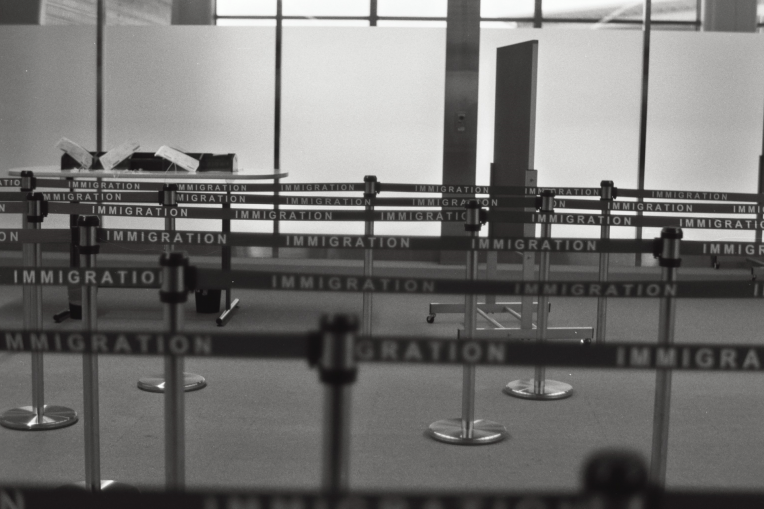The Stevenson Center for Community and Economic Development‘s interdisciplinary, applied curriculum informs the work Michael Hotard ’09 does today as senior program manager at the Stanford Immigration Policy Lab.
Hotard discussed the experiences and struggles that have shaped his career in an online presentation to current Stevenson Center Fellows on October 23. Hotard completed his M.S. in applied economics at Illinois State after earning a bachelor’s in economics and sociology from the University of Georgia and serving as a Peace Corps Volunteer. During his two years in Kazakhstan working with a nongovernmental organization focused on building civic society, he developed assessment systems, wrote grant proposals, conducted training sessions, and much more.
From there, Hotard became a workforce program analyst with the U.S. Department of Labor. He managed a portfolio of 35 workforce development grants awarded to nonprofit organizations, state agencies, and community colleges in the northeast region. There he used his data analysis skills to improve reporting and monitoring systems while simultaneously working with grantees and communities to overcome their challenges. Five years later, Hotard took a position as director of operations with CivicPulse, a nonpartisan organization with a mission to learn the opinions of civic leaders across the U.S., and then he moved to the Stanford Immigration Policy Lab (IPL).
“Looking back on my career path, again and again, I see the value of my interdisciplinary training at the [Stevenson] Center which taught me to think about what the research says, but also what the community needs and assets are.”
Hotard described how he started from a position of uncertainty: “I don’t think I could have imagined a career path quite like I have had, but each experience has been a stepping stone to the next one. This progression from volunteer service at a nonprofit to government work to [that of] the academician has given me perspectives on varied sectors and how they differ from one another.”
A unifying theme in Hotard’s work across his career is the pursuit of evidence to inform decision making and strengthen communities. Hotard sees IPL’s work as critical in providing those who influence immigration policies with the information necessary to make those important decisions. He explained how IPL “…use[s] large datasets, creative research designs, and cutting-edge analytical tools to bring new evidence to bear on the urgent problems practitioners face.”
“During my time there, I’ve been part of a number of research projects, such as one that showed how an administrative change at the USCIS [United States Citizenship and Immigration Services] led to the naturalization of tens of thousands of low-income immigrants, another that helped develop new survey technologies to measure how refugees are doing during the COVID-19 pandemic, and a new initiative where we plan to study the health effects of federal policies on the children of undocumented immigrants,” he said.
To further IPL’s mission, Hotard still draws on what he learned at the Stevenson Center. “The type of skills required for that position are those that are best developed at a place like the Stevenson Center – an interdisciplinary understanding of academia and community development,” he said.
“Looking back on my career path, again and again, I see the value of my interdisciplinary training at the Center which taught me to think about what the research says, but also what the community needs and assets are,” Hotard continued.

When asked about advice he would give to current and future Stevenson Center Fellows, Hotard had a simple message: “In your time at ISU, both during classes and during your practicum, I encourage you to always keep that interdisciplinary focus in mind. You can draw upon your studies in whatever program track you are in, but you can also understand that communities have many of the answers themselves.”
The Stevenson Center is now accepting applications for fall 2021. Prospective students can learn more about becoming a Fellow and connect directly with an Alumni Ambassador or Stevenson Center staff.
Dani Park is the Stevenson Center’s public relations graduate assistant.

